Stage director Wojtek Klemm has joined forces with third-year acting students of the Max Reinhardt Seminar to develop a play about showbusiness itself. Killing of Silent Hopes casts its gaze on the trials and tribulations of life as an actor/actress.
They’re young. There are eleven of them. They study acting. They belong together. They compete with each other. They want to go on stage. They want to be seen. And they have hopes—hopes that are anything but silent.
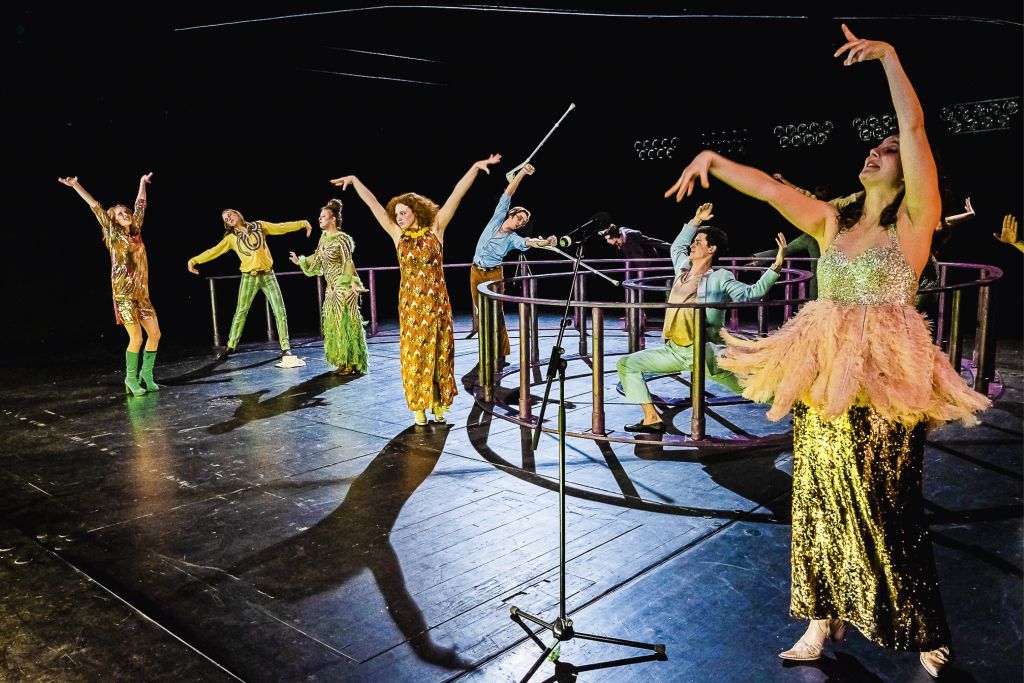
Killing of Silent Hopes is the title of the theatrical project currently being realised by the Max Reinhardt Seminar’s third-year acting students. It’s the first production in a long time to be mounted by students from a single year’s class. The students themselves came up with the title of this work that they developed under the direction of Wojtek Klemm, a title possessed of special poignance after a year that’s seen one lockdown followed by the next. “Perhaps the students sense that this situation concedes no space to silent hopes—they’ve got to be loud,” says Klemm in conversation with mdw Magazine one rainy rehearsal day at an otherwise deserted Max Reinhardt Seminar.
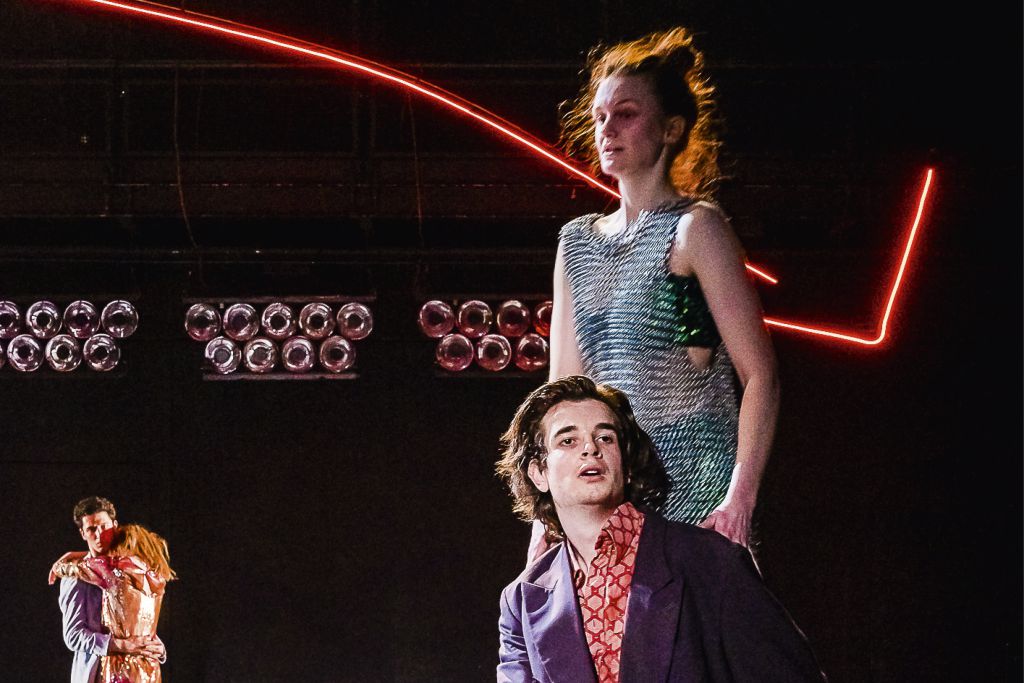
The German-Polish director, who headed the Teatr Nowida from 2007 to 2009 and works at renowned institutions such as the Deutsches Theater and the Volksbühne in Berlin, Schauspiel Stuttgart, and Zurich’s Theater Neumarkt, is known for his thoroughly choreographed and body-oriented productions. And like so often, he’s once again working with a choreographer at his side.
Although performing before a live audience isn’t an option, for which reason the world première will be something of a ghost premiere, one can still sense the team’s uniformly overwhelming energy during the final rehearsals. “We’re all very grateful that we’ve been allowed to work,” says choreographer Salome Schneebeli. Their enthusiasm is indeed hard to miss.
The acting students glisten and sparkle. Clad in sequined costumes, pointed shoes, cowboy hats, bellbottoms, and red-feathered tutus (costumes: Denise Leisentritt), the eleven third-year élèves go up on the Max Reinhardt Seminar’s dark stage and start dancing. Each of them with their own sequence of movements, their own moves to the hard techno beat (music: Benno Hiti) blaring from the loudspeakers. “For everyone who’s new: what you see here goes on ’round the clock and on and on,” the emcee shouts into the microphone. That’s why there’s “free aspirin for everyone”. Whoever fizzles out loses. The motto: “dance till you drop”.
The very loose dramatic arc that served as a basis for this play’s development was taken from Sydney Pollack’s 1969 dance drama They Shoot Horses, Don’t They? This movie is set at a Great Depression-era dancing marathon. A monetary prize is promised to the couple that holds out to the bitter end, but many of the people there have turned out not to win but for the free food and drink being served during the competition. The dancing continues to the point of total physical and psychological breakdown.
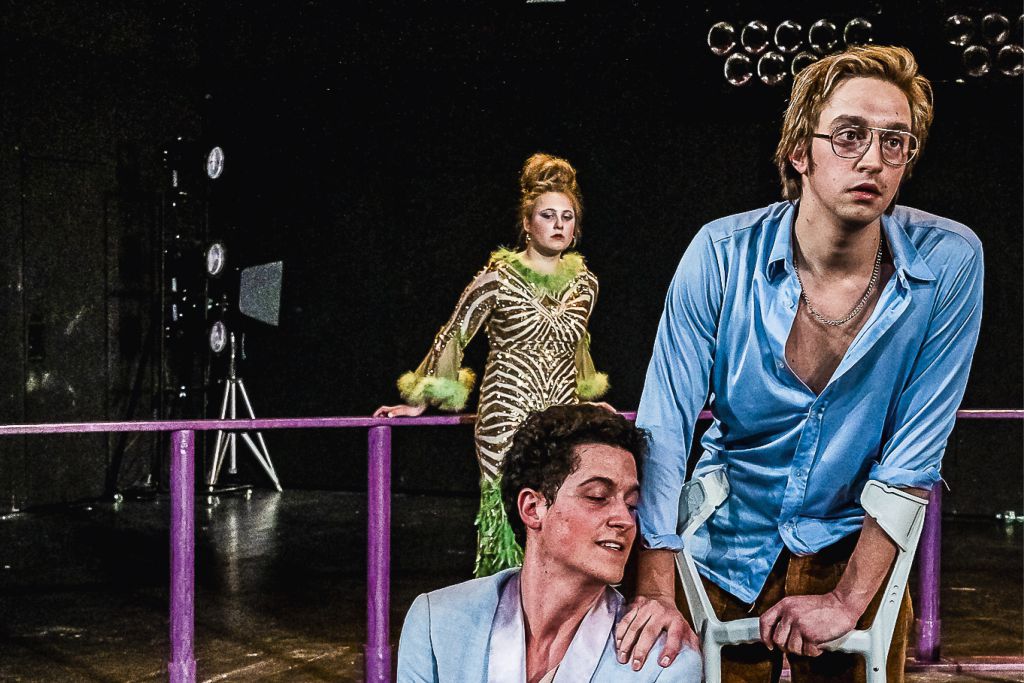
For anyone doing theatre in 2021, there’s no getting past the notion of crisis—so this choice of material seemed to make sense. But even so, Klemm’s actual concern is with something else: “They Shoot Horses, Don’t They? is set up something like an actor’s life: you apply and get cast or selected, but there’s still only one person left at the end.”
While Pollock’s film bookends this class production, the episodes in between consist of scenes from films by John Cassavetes. “We gave the students a long viewing list, and they watched their way through these films and selected scenes—with no involvement on our part. We then used the scenes they chose to construct an evening,” says Klemm on the development process. Cassavetes, the creator of films like Faces and A Woman under the Influence, is viewed as a central pioneer of American independent film. The screenplay author and director eschewed traditional Hollywood-style storytelling in favour of an actor-centred approach.
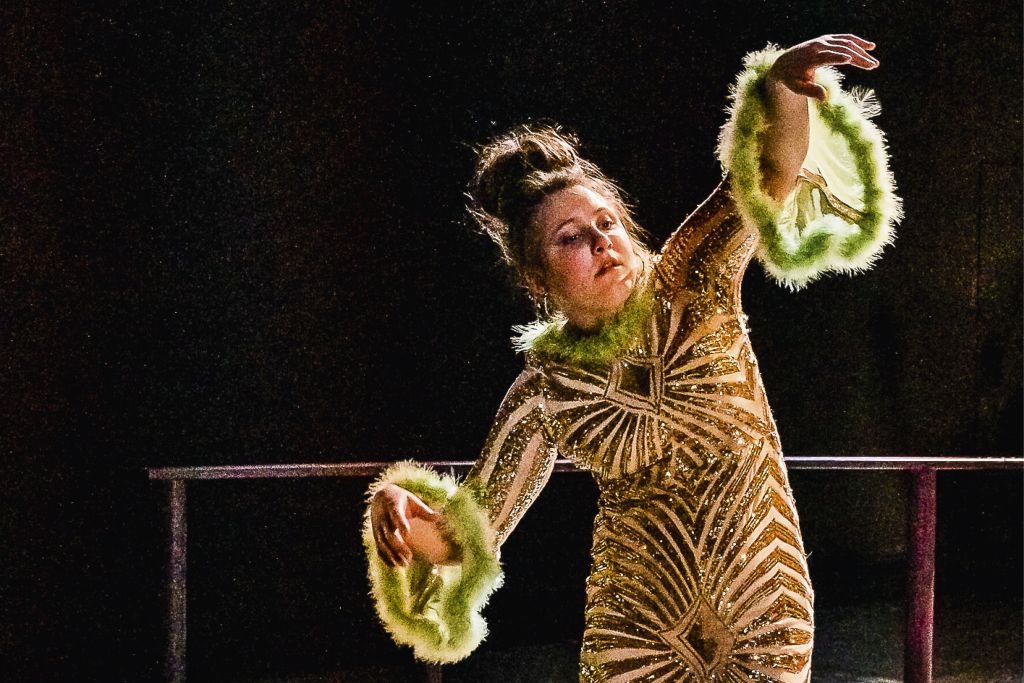
Those who study acting can’t get around putting themselves out there. Klemm puts this in a nutshell: “We tell a story of bodies hurled onto the market, which is definitely a relevant theme for students who’ll suddenly be faced with what’s next year holds in store.” It’s during their fourth year of study that acting students participate in the “Absolvent_innen-Vorspiel” [a collective audition for graduating acting students from across the German-speaking region]—a process that determines just who will end up going on to where. What theatres will be interested in whom? And who will receive no offers at all? There are so many hopes and fears that go hand in hand with this sort of training, with this profession, and all of them can be clearly sensed in Killing of Silent Hopes. We see shaken bodies that want to be loved and are forced to endure onstage defeat. They’re “in search of a role where age plays no role,” standing before closed doors, longing for human touch, negotiating fees. “I don’t want a big scene, just a little one,” can be heard at one point. A female actor gets told she used to be amazing but is now just ordinary. And somebody sighs: “I’m unique in my own way. But who gets booed when something goes wrong? And who gets applauded?”
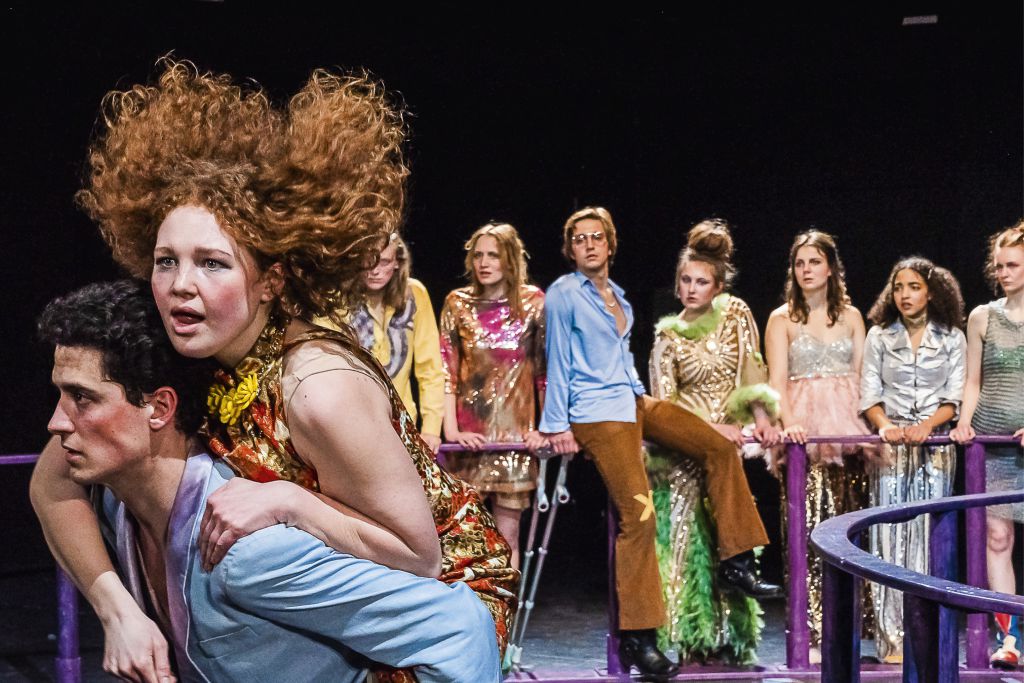
Their collaboration with choreographer Salome Schneebeli has given rise to a highly physical space in which the actors’ bodies are constantly tensed and never stand still. “An actor’s body needs to be in motion and running hot if he or she wants to be able to speak to begin with. Choreography, after all, is more than just dance numbers—and here, the fact is that our entire evening is built on bodily motion,” says Klemm. Even the scenery appears to be in motion. Stage designer Lea Steinhilber has placed a violet-coloured wooden spiral smack in the middle of the floor. It’s initially inescapable, with everyone inexorably gravitating towards its centre—until new possibilities eventually crop up. The actors slip between the spiral’s balusters or jump over its handrail. They search for creative ways out. Because the show must go on.

